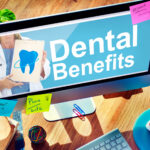Why should I regularly visit a dentist?
Seeing your dentist regularly is one of the best things you can do to ensure your teeth last your entire lifetime.
Regular visits are vital for the maintenance of healthy teeth and gums. When your dentist spots dental health problems early enough, treatment will be simpler and more affordable. Additionally, the presence of certain types of oral bacteria may be a sign of sickness and disease; thus, regular dental checkups can help you maintain your overall health as well.
How often do I need to see the dentist?
Every patient is different. Generally, we recommend twice-yearly visits for at least a basic examination and/or cleaning; however, some may need more frequent visits.
Do I really need to floss?
Every time you eat, the invisible, sticky film known as plaque begins building on your teeth. Plaque is full of bacteria – microscopic creatures that feed on the food particles left on your teeth. Brushing your teeth gets rid of some of the bacteria, but flossing gets rid of the bacteria hiding in between your teeth.
Without a regular routine of brushing and flossing, this bacteria will harden into tartar. Tartar is too hard to be removed by brushing and flossing, so it requires removal by a dentist. Tartar will continue to attack your teeth and gums; left untreated, tartar leads to cavities and tooth decay, can eventually cause your teeth to fall out, and may also contribute to serious conditions such as heart disease.
How can I prevent cavities?
A good and regular oral health routine includes brushing your teeth at least twice a day, and flossing at least once daily. You should spend between two and three minutes brushing, which is long enough to effectively remove the bacteria that destroys tooth enamel. Ask your dentist to show you the proper flossing technique.
Additionally, limit the amount of sugar in your diet, as the bacteria in your mouth love to feast on it. Be especially mindful of foods that stick to your teeth, like peanut butter or candy. If you do eat sweets, limit how many times you do so throughout the day, and be sure to clean your teeth afterwards. If you can’t brush, at least rinse your mouth out with water. You may also chew sugarless gum, which stimulates the flow of saliva, your body’s natural resistance to plaque.
Make sure to see your dentist regularly to help prevent small problems from getting out of control.
My teeth are sensitive. What can I do?
Many patients use sensitivity toothpaste with good results. Active ingredients work to either numb tooth sensitivity or block the tubules (microscopic pores in tooth enamel) that lead to the nerve of the tooth.
Also, highly acidic foods and beverages, such as citrus fruits, tea and soda can increase tooth sensitivity. If you suffer from tooth sensitivity, speak to your dentist and he or she can recommend a specific toothpaste and additional measures to help manage your condition.
What is periodontal disease?
Advanced periodontal disease (also known as periodontitis or gum disease) is an infection of the gums. As bacteria continues to attack the gums, the inner layer of the gum eventually pulls away from the teeth. The small space or pocket that is created further collects bacteria, eventually becoming infected. In periodontitis, bacteria has sufficiently built up in or around the gum tissue to the point that the body cannot contain or reverse the infection.
Those suffering from periodontitis may show any of the following systems:
- Gums that have turned red or purple
- Gums that are tender or painful to touch
- Swollen or receding gums
- Bleeding (especially after brushing and/or flossing)
- Bad breath (Halitosis)
- Mouth sores
- Appearance of deep pockets between teeth and gums
- Loose (or shifting) teeth
If left untreated, the effects of periodontal disease are serious, possibly requiring surgery to prevent tooth loss. However, early diagnosis and a plan recommended by your dentist can effectively treat the disease and even reverse the effects.
Should I use a tooth whitening toothpaste?
Commercial whitening toothpastes vary greatly in their results. Additionally, since some varieties contain harsh abrasives, improper or overuse may damage tooth enamel and even contribute to tooth sensitivity problems.
If you are considering a whitening toothpaste, speak to your dentist and he or she can provide the guidance you need to make a good decision.
My gums bleed. Should I be worried?
Typically, gums that bleed are a symptom of greater problems, such as the onset of gingivitis or periodontal disease. At times, people no longer brush effectively or as frequently as they should because it may be painful or cause further bleeding. However, this only causes the condition to worsen.
If your gums are bleeding, it’s imperative that you see your dentist as soon as possible.
How will oral piercings affect my oral health?
We recognize that oral piercing has gained widespread acceptance as a form of self-expression in recent years. However, you should be aware of the potential problems it causes.
Oral piercings may cause any of the following:
- Pain
- Swelling
- Infection
- Abnormal drooling
- Taste loss
- Scarring
- Chipped teeth
- Increased chance of tooth loss
- Difficulty speaking
If you are thinking of getting an oral piercing, or if you already have one and are experiencing problems, see your dentist right away.
I just found out I’m pregnant. Will this affect my oral health?
About 50% of pregnant women experience a condition known as pregnancy gingivitis. In addition to being uncomfortable, this condition may cause swelling, bleeding, redness or tenderness in the gums.
If you experience these symptoms, it’s important to see your dentist. It’s possible that you suffer from the more serious condition of periodontal (gum) disease, which could be harmful to your baby. Some studies show that pregnant women with periodontal disease are seven times more likely to deliver pre-term.
I am undergoing radiation and/or chemotherapy as part of my cancer treatment. How can this affect my mouth?
Radiation and chemotherapy may be responsible for a number of problems in the mouth, including:
- Mouth sores
- Infections
- Dry mouth
- Bleeding of the gums
- General soreness or pain in the mouth
Additionally, since these treatments generally suppress the body’s immune system, these conditions may be more difficult to control.
If you are receiving cancer treatment, be sure to see your dentist and he or she can help develop a plan to relieve these symptoms as much as possible.



